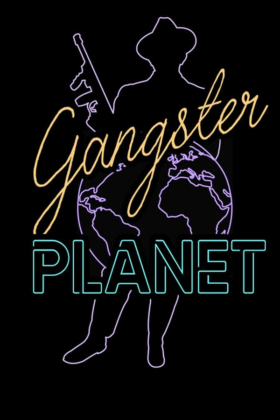 On June 17, 2019, a massive 20-ton cocaine bust went down at the port of Philadelphia aboard a container ship calling at the port. Today is the one-year anniversary of that drug bust, the second largest in American history, and one of five covered in “Gangster Planet.”
On June 17, 2019, a massive 20-ton cocaine bust went down at the port of Philadelphia aboard a container ship calling at the port. Today is the one-year anniversary of that drug bust, the second largest in American history, and one of five covered in “Gangster Planet.”
Agents from a multi-agency Federal task force swarmed aboard a two block-long container ship called the MSC GAYANE, the second largest in the world.
The official story of the massive drug seizure—which is simple, but wrong—has the task force stumble onto a massive drug shipment on the container ship as it entered the port of Philadelphia.
However, the story contains more anomalies than a YouTube video about Area 51. Even worse is that everything about the ‘Big Big Blow Bust’ remains highly classified.
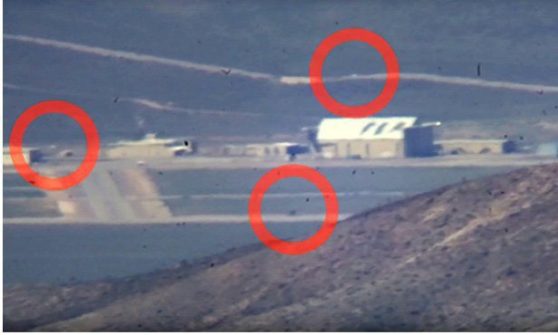 What facts there are have been put on lock-down.The matter is being treated as a threat to national security. So the only real news concerns the movement of time, which marks this date as the 1-year anniversary of a ruined billion-dollar business deal between two unknown parties.
What facts there are have been put on lock-down.The matter is being treated as a threat to national security. So the only real news concerns the movement of time, which marks this date as the 1-year anniversary of a ruined billion-dollar business deal between two unknown parties.
Since the anniversary story is all we have, I did a little research…The traditional 1-year anniversary gift is paper. The modern gift is a clock.
Fun Places to Go on a 1-year anniversary romp include: “A Stay at A Bed and Breakfast;” “A Picnic in the Park;” and “A Walk Around A Botanical Garden.”
Early guilty pleas get “disappeared”
 After the seizure aboard the MSC Guyane, two crew members pled guilty within days. Shortly afterwards their guilty pleas—as well as their names—were removed from court records.
After the seizure aboard the MSC Guyane, two crew members pled guilty within days. Shortly afterwards their guilty pleas—as well as their names—were removed from court records.
So, too, have the names of four other crewman on the ship who were arrested the following week. Their names are known only because the local Philadelphia Inquirer copied the criminal indictment before it disappeared.
What positions they held aboard the ship remain unknown. However, court filings that have since been removed suggest the suspects include the chief mate, an electrician, and an engineer.
Authorities said they hoped to release more information the following week, but never did. At the same time that public information about the major incident was virtually non-existent, the state itself was complaining it was swimming in data.
US District Judge Harvey Bartle— in an Order suspending the Speedy Trial Act in the case of Nenan Ullo, one of the Able Seamen charged—made much of mountains of evidence investigators were being forced to sift through, which included:
“4000 hours of audio from 6 microphone onboard the vessel; 50 electronic devices, including mobile phones, laptops and desktops; thousands of emails and text messages; and over 500,000 megabytes of material from the ship’s Voyage Date Recorder.”
In addition, said the Judge, the voluminous documents and recordings required translation into languages spoken on the tapes, including Serbian, Samoan, Romanian, and Hindi.
Speedy Trial Act” not designed for such situations.
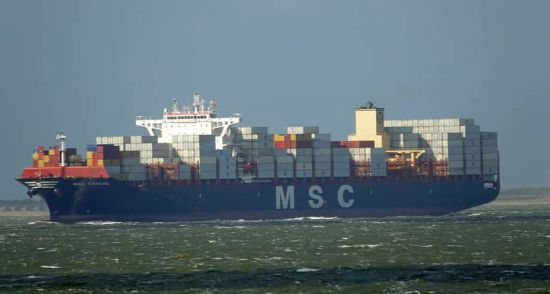 There were also reports of interviews to compile, grand jury transcripts, and an ominously vague item labelled “other related matters pending and under seal.”
There were also reports of interviews to compile, grand jury transcripts, and an ominously vague item labelled “other related matters pending and under seal.”
And, if the defendant himself wanted to file motions…well, perish the thought.
This was the moment when I realized: We’ve seen this movie before.
When an investigation is likely to result in a fairly transparent cover-up, one way the Governments hedges its bets is by indulging in a little shock and awe.They try to impress with the gargantuan size of their efforts.
Remember the FBI’s ballyhooed 4000-man investigation after the 9/11 attack? That the FBI described as “the most exhaustive in its history?”
If so, you may also remember that the investigation into the deaths of almost 3000 civilians lasted just three weeks, until someone—we still don’t know who— wrenched the focus of the investigation from the terrorist hijackers to the question of who had mailed letters sprinkled with anthrax to various and sundry Senators, dignitaries, and news outlets.
About the anthrax, they never did find out. The result was that FBI Agents were ordered to curtail their investigation into the Sept. 11 attack.
Robert Mueller, newly sworn in head of the FBI, believed his agents “had a broad understanding of the events of Sept. 11,” officials said.
“The investigative staff has to be made to understand that we’re not trying to solve a crime now,” said one law enforcement official, speaking on condition of anonymity. “It was now time to move on.”
“Moving on.”
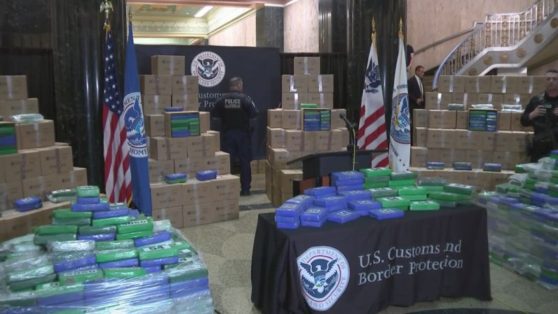 U.S. Attorney for Philadelphia William McSwain probably won’t say anything to mark the 1st anniversary of the seizure of 20 tons of cocaine.
U.S. Attorney for Philadelphia William McSwain probably won’t say anything to mark the 1st anniversary of the seizure of 20 tons of cocaine.
The ginormous blow bust was the 2nd largest in American history. In the year since, U.S. Attorney McSwain hasn’t arrested anyone higher-ranking than the ships’ Second Mate. So what we knew a year ago is still, pretty much, what we know now.
The ship’s 4th Engineer doesn’t sound like a job for a drug cartel mover-and-shaker. Neither does “Engineer Trainee.” But that’s who got arrested. All McSwain had was a handful of Able Seamen whose credentials as potential Global Drug Kingpins were thin-to-non-existent.
Wearing a gray suit with a pale blue shirt with a tie boasting a matching blue stripe against a sober maroon background, McSwain spoke directly to camera, although who he thought he was addressing remained unclear.
What did become clear, however, was that somebody had been giving him some public relations advice, when The U.S. Attorney’s office released a video touting the government’s seizure of the MSC Guyane on the morning of the 4th of July holiday.
The U.S. Attorney does a video
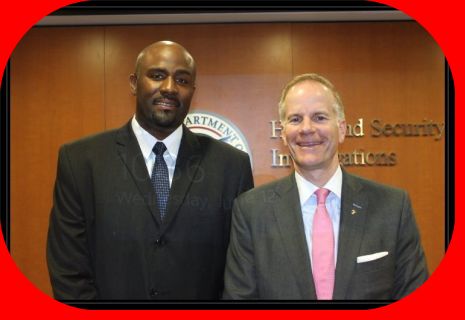 McSwain opened by saying, “I’m announcing that in the early morning hours of last Thursday, July 4th—while our nation was celebrating its independence—the brave men and women of Customs’ and Border Protection executed a seizure warrant obtained by my office for the shipping vessel MSC Guyane, making it subject to possible forfeiture to the United States.”
McSwain opened by saying, “I’m announcing that in the early morning hours of last Thursday, July 4th—while our nation was celebrating its independence—the brave men and women of Customs’ and Border Protection executed a seizure warrant obtained by my office for the shipping vessel MSC Guyane, making it subject to possible forfeiture to the United States.”
“The seizure of a seafaring vessel this massive—roughly two city blocks long—is complicated and unprecedented. But action is absolutely appropriate and necessary, because the circumstances of the drug seizure on the ship were unprecedented… Nearly 20 tons of cocaine with a street value of more than a billion dollars.”
“When a vessel brings such an outrageous amount of deadly drugs into Philadelphia waters, my office and our Agency partners will pursue the most severe consequences possible, against all involved parties, to protect our city, our district, and our country.”
When he got to the part about “most severe consequences,” McSwain pursed his lips, as if indicating that he was the kind of person who would not flinch from making miscreants walk the plank.
A Law & Order kind of guy
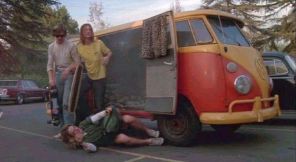 However, it was all just talk. “So far, prosecutors in Philadelphia have not accused MSC of any wrong-doing,” The Philadelphia Inquirer’s Jeremy Roebuck reported.
However, it was all just talk. “So far, prosecutors in Philadelphia have not accused MSC of any wrong-doing,” The Philadelphia Inquirer’s Jeremy Roebuck reported.
When the massive cargo container vessel was shortly thereafter released back to its owners, a wave of spontaneous outrage erupted. His action was another confirmation that the US has a two-tier justice system. One for haves, and one for have-nots.
Nothing about the deal passed the ‘hippie crossing the border in a pop-top VW camper smell test.’
Imagine you’re a nouveau hippie driving an antique VW van back to the States, after a margarita-soaked weekend at Rosarito Beach in Baja California. What happens if— crammed into the little nook in the VW Van set aside for herb tea—Customs agents find a dozen kilos of cocaine when you cross the border?
Would U.S. District Atty William McSwain impound your buddy’s VW van? In a heartbeat. Which is why response on social media revealed anger at the inequity of MSC Mediterranean Shipping Lines not receiving the same treatment—despite trafficking 20 tons—as a friendly hippie’s VW Van.
Kneeling on MSC’s corporate neck was clearly not a thought on authorities’ minds.
Old Customs house decked out with cocaine
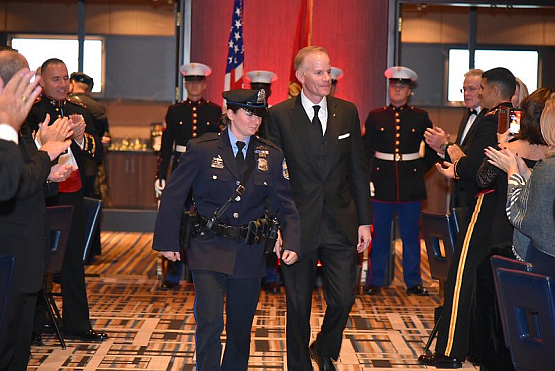 Authorities held a big congratulatory news conference three days after the big bust.
Authorities held a big congratulatory news conference three days after the big bust.
Philadelphia’s Old Custom House was filled to the rim with booty. “Friday’s news conference was big on flashy visuals, but less so on new information,” The Inquirer reported.
News cameras feasted on an eye-popping stacks of cocaine glistening in cellophane wrappers, piled onto wooden pallets.
It was the kind of ceremony that you see a lot in Latin America, that’s come to be known as “drug porn.”
There are only so many ways to say that authorities are keeping facts close to the vest. “Authorities remained circumspect about the roles played by the six crew members arrested.”
“Authorities demurred from saying what led them to the MSC Gayane.”
“The investigation is ongoing, and the situation is very fluid, “said U.S. Attorney McSwain.
The U.S. Attorney for the Eastern District of Pennsylvania took the opportunity to deliver what he must have thought was a blunt message to drug traffickers: ‘Don’t mess with Philly.’
“You thought you could breeze into our port and then leave with enough cocaine to destroy millions of lives without getting caught. You thought you were clever. You were wrong.”
“You underestimated the city; you underestimated our law enforcement capabilities and our commitment to decimating the llegal and immoral drug trade.”
It was mis-underestimation all around.
Shipping affected by trafficking… “from time to time”
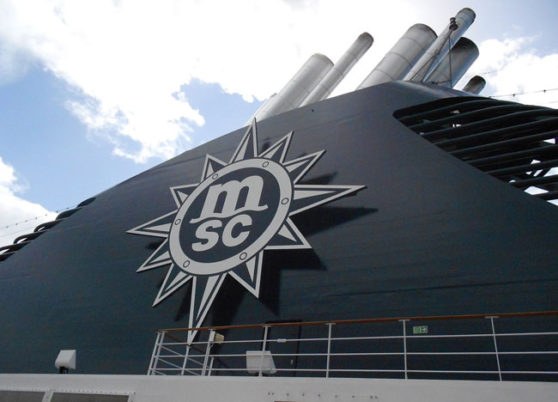 Fingering the organization responsible for the 20-ton drug move was not high on authorities’ agenda anytime soon.
Fingering the organization responsible for the 20-ton drug move was not high on authorities’ agenda anytime soon.
A spokesman for MSC Mediterranean Shipping declined comment. Earlier the firm issued a statement. “Unfortunately shipping and logistics companies are from time to time affected by trafficking problems.”
The story that isn’t being told—or even hinted at—is filled with “former” CIA officers manning offshore intelligence posts in Costa Rica, a former Congressional aide to now-deceased Republican Senator from North Carolina Jesse Helms who claimed he learned the ‘art’ of money laundering while working for the organization responsible for the Iran-Contra scandal.
The Enterprise. The Homeland Security rackets. An arms-dealing, drug trafficking Praetorian Guard in the White House replaces U. S. Constitution with a secret government.
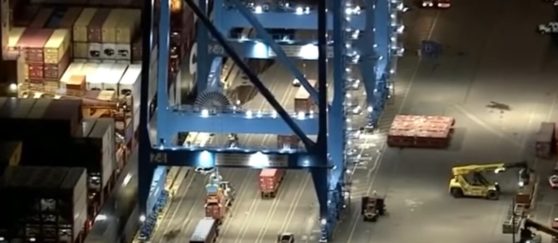 Evidence of a transnational organized crime ring orders of magnitude larger than traditional American Godfather-type organized crime. Any conspiracy theory that includes a member of the Osmond’s and the blood of a goat promises to at least be entertaining.
Evidence of a transnational organized crime ring orders of magnitude larger than traditional American Godfather-type organized crime. Any conspiracy theory that includes a member of the Osmond’s and the blood of a goat promises to at least be entertaining.
What’s being protected from closer scrutiny? Nothing less than the biggest slush fund in the history of our Gangster Planet. It’s an ever-growing mountain of cash stretching from here the moon and back. In fives, twenties, and hundred-dollar bills.
Two major taboos in the mainstream media are: Who ends up with the biggest share of money from drug trafficking? The other is not asking why the American government has spent billions of dollars making citizens vote on electronic voting machines which can be rigged at will by almost anyone with a modem and a paper clip.
Entertaining either notion is not something to take lightly.
Montenegro meets Samoa, but why
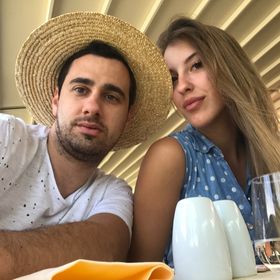 Ivan Duresevic, 29, and Fonofaavae Tiasaga, 28, almost immediately confessed to helping load the cocaine onboard. Their names were visible in the Federal criminal complaint. And they suddenly they weren’t.
Ivan Duresevic, 29, and Fonofaavae Tiasaga, 28, almost immediately confessed to helping load the cocaine onboard. Their names were visible in the Federal criminal complaint. And they suddenly they weren’t.
The two crew members confessed to helping haul dozens of bales of cocaine aboard the giant container ship, one of the world’s largest, from smaller boats that approached the ship as it plied the waters between Peru and Panama.
They described hauling nets filled with thousands of bricks of cocaine aboard the vessel from 14 different go-fast boats onto the MSC Gayane.
Several more crew members were arrested a few days later: Lauuli Pulu, 32; Bosko Markovic, 37; Aleksander Kavaja, 25; and Nenad Ilic, 39. There was no word since on the disposition to any of their cases. Their names were soon redacted, as well.
Searches on Pacer repeatedly returned two screens. One said, “That document is not available.” The other, slightly less friendly, stated flatly, “You do not have permission to view this document.”
Then, on Monday, a crack appeared. The U.S. Atty issued a press release stating a crewman on the MSC Guyane—not previously known to have been arrested—had just pled guilty in Federal Court. The headline read: “MSC Guyane crew member pleads guilty to cocaine trafficking stemming from one of the largest drug seizures in U.S. history.”
“Vladimir Penda, 27, from Montenegro, entered a plea of guilty to conspiracy to possess with intent to distribute more than five kilograms of cocaine.”
“Under cover of darkness, Penda helped load bulk cocaine onto the vessel from speedboats that approached at high speeds. Crew members hoisted the cocaine from cargo nets filled with cocaine onto the deck of the ship, and then stashed the drug in various containers.”
“The defendant faces a maximum possible sentence of lifetime in prison.”
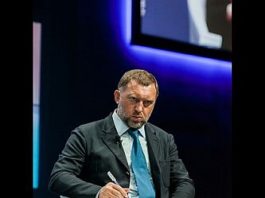 Oleg Deripaska’s lavish billionaire’s yacht club next to Kotor is Russia’s very own Pompeii on the Adriatic.
Oleg Deripaska’s lavish billionaire’s yacht club next to Kotor is Russia’s very own Pompeii on the Adriatic.
Deripaska has been more active in Russiagate than any other Russian mobster. He’s jetting around more than Oliver North during Iran Contra. So, the Russians appear to have tapped the right guy to run Montenegro operations for them.
The horror in Kotor
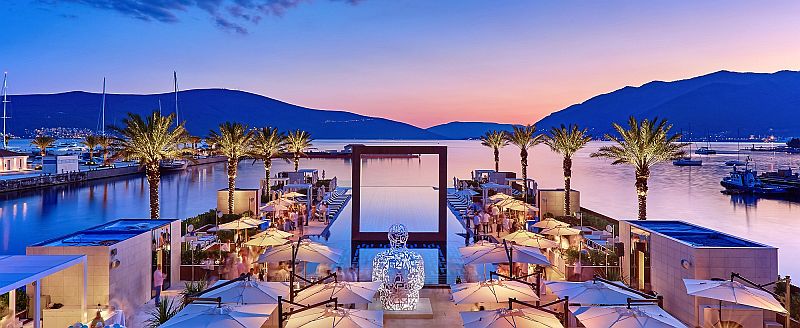 Four of the arrested crewmen hail from Kotor on Montenegro’s Adriatic Coast. The “Kotor sailors” included Ivan, Boško Marković (37), Aleksandar Kavaji (25) and Nenad Ilic (39).
Four of the arrested crewmen hail from Kotor on Montenegro’s Adriatic Coast. The “Kotor sailors” included Ivan, Boško Marković (37), Aleksandar Kavaji (25) and Nenad Ilic (39).
After the disappearance in the Spanish town of Valencia of 200 kg of cocaine, Kotor’s main drug cartel split into feuding gangs in 2014. The result was a raging war that has been fought all over Europe. The ongoing bloody feud is the most ferocious mafia war on the continent.
The conflict between Kotor mafia groups has led to dozens of unsolved murders. Besides Montenegro, the clans perform liquidations of their rivals in Serbia, Bosnia, and Herzegovina, Italy, and Germany.
Sample headline: “Montenegro’s ‘tourist jewel’ is being torn apart by deadly drug gang clashes.”
“Balkans “cocaine king” Darko Saric, jailed for 20 years by a Serbian court last year, owns several companies in Kotor,” Montenegro newspapers reported, “where ĐURAŠEVIĆ comes from a prominent and well-off captain’s family.
But the Serbian mafia is not a stand-alone Mob.
The Mafia factions in Kotor, Montenegro—where Second Mate Ivan Durasevic and other implicated seamen are from— have been in a violent war with each other. Dozens of casualties are spread all across Europe.
The trail leading from the violence in Kotor to the Russian Mob is thick with breadcrumbs. The drug moves began in Montevideo in Uruguay, where the Serbian Mafia has a major connection.
The Mafia in Kotor is a satellite of the Russian Mob. And sitting astride the operation is the man many say secretly runs Montenegro, Russian oligarch Oleg Deripaska— no stranger to drug trafficking—has an outsized presence in Kotor, where he built a lavish resort and billionaire’s yacht club on the Adriatic.
Here’s where the Russian Mob—and Oleg Deripaska—come in.
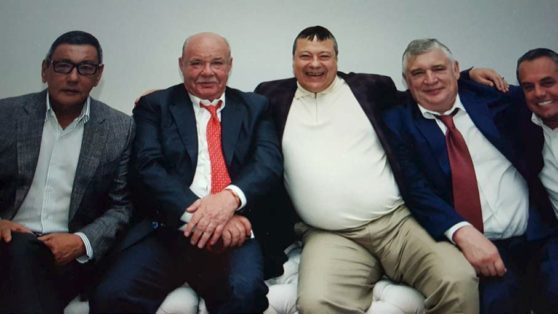 Behind the 20-ton drug move is the looming presence in Montenegro of Russian oligarch Oleg Deripaska, a flare going up in the dark.
Behind the 20-ton drug move is the looming presence in Montenegro of Russian oligarch Oleg Deripaska, a flare going up in the dark.
Russian oligarch Deripaska— Oleg the oligarch, the Oliver North of Russiagate, and no stranger to drug trafficking—has an outsized presence in Kotor, where he built a $500 million dollar resort and lavish billionaire’s yacht club on the shores of the Adriatic.
He’s even suspected of being behind an unsuccessful coup.
“The war of these clans extends from Valencia, through the Netherlands and Vienna, to Belgrade, Budva, Kotor, Bar and Podgorica. At least 40 people have been murdered.”
The Skaljari and Kavac Mafia clans are fighting for control of the main ports of Montenegro, which has become a center of cocaine transfer from Latin America.
Leading one of the clans are the Saric brothers, Darko and Dusko. Darko Saric was recently sentenced in Belgrade to 20 years in prison for the traffic of 5.7 tons of cocaine from Latin America to Western Europe.
Second Mate Ivan Durasevic’s hometown has become a major hub for cocaine from South America. Recently two men found dead in the northern German state of Brandenburg were casualties of the conflict. Another Montenegrin mafioso was murdered in front of a Viennese schnitzel restaurant.
Snipers in the hills
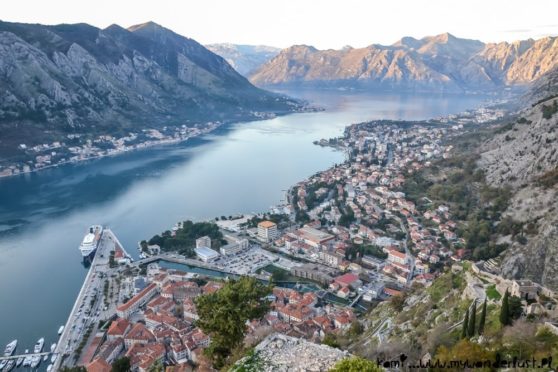 Even Montenegro’s thick prison walls offer no protection. A sniper in the hills above the prison blew away a 34-year-old drug trafficker belonging to one of the mafia clans while he was taking an evening walk in the prison yard.
Even Montenegro’s thick prison walls offer no protection. A sniper in the hills above the prison blew away a 34-year-old drug trafficker belonging to one of the mafia clans while he was taking an evening walk in the prison yard.
Smuggling had always existed in Montenegro. State-sponsored cigarette smuggling flourished in go-fast boats which zipped across the Adriatic every night, delivering untaxed cigarettes to Italy, providing the Yugoslav state with foreign currency.
After the war in the Balkans, cigarette smuggling ended, but the even more profitable cocaine trade from South America took over.
The gangs enjoy the support of customs officers and border police. At certain times of the day —during what the Mafia clans in Kotor call “happy hours”—officials ‘look the other way,’ and the smugglers make their move.
Deripaska has been more active in Russiagate than any other Russian mobster. He’s jetting around more than Oliver North during Iran Contra. His billionaire’s yacht club in Korea threatens to become Russia’s very own Pompeii on the Adriatic.
What’s crazy about U.S. Attorney McSwain’s is his apparently implicit assumption that drug trafficking is a matter of grave national security.
U.S. Attorney McSwain said, “We must do everything we can to dismantle international drug trafficking organizations that destroy the lives of those who are addicted to drugs. That includes aggressive prosecution of those who seek to profit from peddling poison.”
That may prove difficult. McSwain is a rabid Trump loyalist. Why that’s important is that it’s clear to many that the Russian Mob, Trump’s biggest supporters, were behind the 20-ton drug move.
Trump’s top federal prosecutor in Philadelphia recently launched an extraordinary attack on Philadelphia’s elected district attorney, after a drug suspect shot and wounded six of the city’s police officers.
McSwain issued an unusual and inflammatory statement slamming Philadelphia District Attorney Larry Krasner. He said the shooting was “precipitated by a stunning disrespect for law enforcement” that is “promoted and championed by the District Attorney.”
He claimed that Krasner, because he has litigated cases in the past against the Philadelphia Police Department, was engaged in “vile rhetoric” that endangered police and accused the Philadelphia District Attorney of “lawlessness” and “making excuses for criminals.”
“The crisis was precipitated by a stunning disrespect for law enforcement—a disrespect so flagrant and so reckless that the suspect immediately opened fire on every single officer within shooting distance.”
Krasner brushed off the diatribe as “a familiar bit of opportunistic politics” from the Trump administration.
What’s this particular cover-up about?
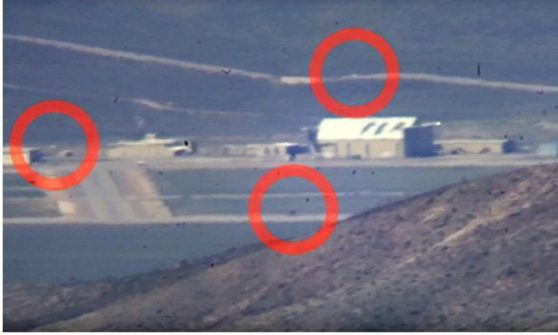 McSwain enthused, “This is one of the largest drug seizures in United States history. This volume of cocaine could kill millions – MILLIONS – of people.”
McSwain enthused, “This is one of the largest drug seizures in United States history. This volume of cocaine could kill millions – MILLIONS – of people.”
If what he was saying was true, millions would surely be in his debt. But his logic is specious. When the U.S. Government successfully targeted and killed Pablo Escobar (as well as Barry Seal) and brought down the Medellin Cartel, did it result in cocaine becoming harder to find? Or more costly?
It did neither. Seizing 20 tons of cocaine— as U.S. Attorney McSwain must know— does not mean taking 20 tons off the streets. It just creates a marketing opportunity for someone else’s 20 tons.
There’s another thing troubling about McSwain. Sealing individual court files may be common practice in a case of this magnitude.
But pulling an indictment that has already been made public seems more than a bit much. It is highly unusual, and probably unconstitutional.
What’s going on? Based on more than 15 years investigating drug moves gone wrong which become public knowledge, it’s a Star Chamber ploy, an attempt to control what information is allowed to reach the public.
McSwain continued to sound like an unreconstructed Cold Warrior fighting the war on drugs. It made him sound a little unhinged.
He is on the horns of another dilemma, as well. He needs to find someone to charge with the crime with the stature to look like he could have ordered one of the most massive drug moves in history. That means finding someone who occupies a slightly loftier position than the ship’s Second Mate.
Newspapers in the Balkans scoffed at the story told by the U.S. Attorney in Philadelphia. “They (the crew) supposedly unloaded cocaine off small boats in an incredible forty minutes,” one paper snorted. “It’s a ridiculous assertion.”
Second Mate Ivan Durasevich was a convenient fall guy, but he cut a poor figure as a drug kingpin. Even that Mexican guy wearing a baseball cap did it better.
20 tons of cocaine sprawled across seven individual shipping containers. It was the largest single drug seizure in the venerable 230-year history of U.S. Customs and Border Patrol.
Another big anomaly you could fly a flight of UFO’s through: Authorities know who was moving the coke. But they have to pretend there’s an investigation still going on—even if there’s not—because they don’t want the public to know.
There is no investigation. Just a cover-up. It’s a familiar situation. But here’s the deal: if I can figure out who did it—and I have— authorities can too.
Rational thought may not be his strong suit
 Among industry observers, there are strong doubts about the US Attorney’s theory of the crime.
Among industry observers, there are strong doubts about the US Attorney’s theory of the crime.
“Occam’s Razor” dictates that 16-30 tons of cargo was not transferred at sea,” opined one old salt, a professional mariner, on at a container ship industry site, “but was transferred as part of routine loading in port. Logic dictates that the operator was complicit.”
At a website discussion board where ship’s crew hang out, opinion was nearly universal that wasn’t what happened. The idea that a tiny go-fast boat was going to brave close proximity to a ship 20-stories high and three football fields long in open seas was a non-starter. The obvious question: “Couldn’t they have more profitably done this on some quiet night in port?”
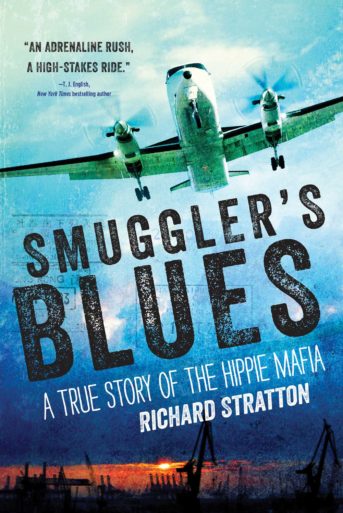 Rogue banks like Wachovia and Deutsche Bank have proven that tools to stop money laundering are not being used, in a delicately worded phrase, “as vigorously and consistently as they could be.”
Rogue banks like Wachovia and Deutsche Bank have proven that tools to stop money laundering are not being used, in a delicately worded phrase, “as vigorously and consistently as they could be.”
Contrast this laissez-faire attitude to major white-collar fraud—which is what drug trafficking basically is—which seldom gets more than a slap on the wrist.
Nobody’s going to kneel on anybody else’s neck over a falsified FAA registration record which shows you didn’t own the drug plane everybody knows that you did.
It’s the politics of contraband. It’s the “Smuggler’s Blues.”
4 responses to “The Politics of Contraband (from Gangster Planet)”
C’mon, in his dialog with George Webb, Daniel says something to the effect that as much as he dislikes Trump, he dislikes Hillary even more.
And while I’m here is there any update on when Gangster Planet is expected to ship???
Dan:
You don’t quit, do ya?
Re-reading Roger Morris’ Clinton bio/diagnosis of the systemic ailments of the Democratic Party, “Partners In Power”…dismal history.
Even a sick donkey beats Donald Trump, though.
“But pulling an indictment that has already been made public seems more than a bit much. It is highly unusual, and probably unconstitutional.”
Yet, that’s precisely what the Trump administration (and one Trump-appointed District Court judge) have done in the Flynn case.
Thanks for the followup Daniel. I suppose they returned the coke intact with the ship? Or will the European players struggle for control move on US soil and said associates who stole the loot?